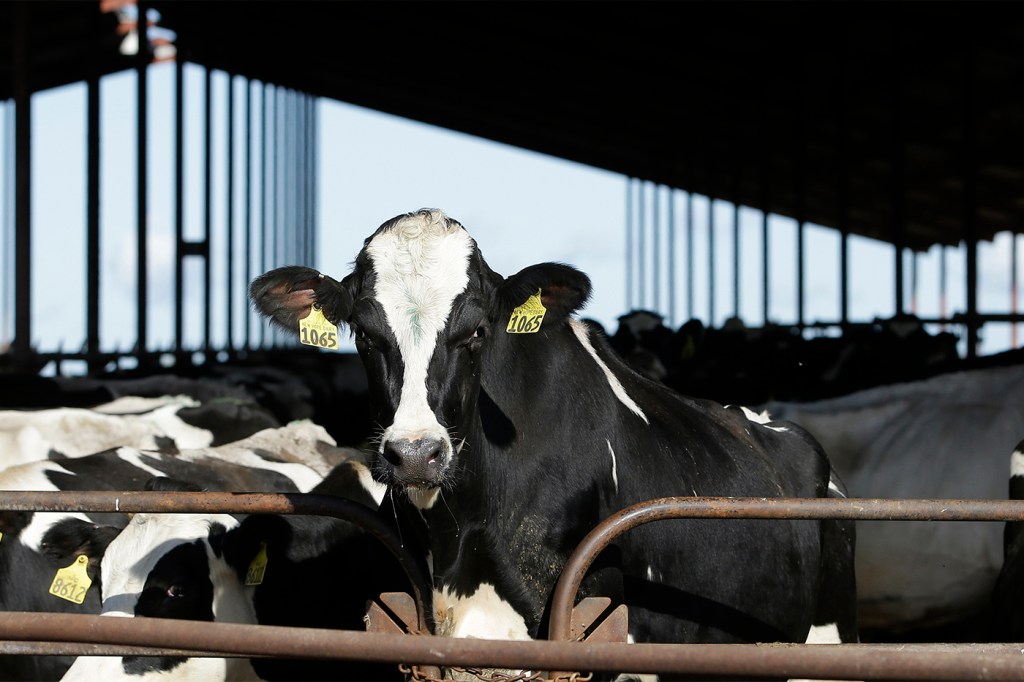Should you be worried about the bird flu outbreak? Food safety expert explains the dangers of consuming raw milk
Cooking meat and limiting yourself to pasteurized milk will help consumers reduce the likelihood of illness, said Northeastern professor Darin Detwiler.

This story was updated on Friday, May 10.
Texas health officials in April confirmed a case of bird flu in a person. Now, the U.S. Food and Drug Administration reported that it has found evidence of the virus in commercially sold milk.
The FDA said one in five samples tested positive for traces of the highly pathogenic avian influenza, but added that the samples did not include any live virus, meaning it’s safe to consume, likely thanks to pasteurization.
On Friday, May 10, the USDA announced it will compensate farmers to help track and limit the spread of the virus.
“Our mission is to contain this as an animal health event,” USDA Secretary Tom Vilsack told reporters.
Cooking meat and limiting yourself to pasteurized milk will help consumers reduce the likelihood of illness, said Northeastern food safety expert Darin Detwiler.
“If we are properly cooking chicken, beef, eggs and dishes with eggs in them, I don’t think that there is any difference in concern than if there was not a bird flu,” Detwiler said. “In the case of milk, I would always say that pasteurized milk is safer than unpasteurized milk, but especially in this kind of situation, it’s perhaps even more of a significant precaution that people should be taking.”

But the problem is some people are unwilling to stop drinking raw milk.
According to the FDA, pasteurization was adopted as a way to kill bacteria in milk that could cause illness. But a very small number (fewer than 1%) of Americans prefer to drink raw milk for the taste and purported health benefits. (Detwiler said there is no scientifically substantiated evidence that this is better.)
Featured Posts
The regulations around the sale of raw milk vary state by state, Detwiler said, but consuming raw milk is legal in all 50 states.
“I’m not saying we have a federal law that bans the sale and consumption of unpasteurized milk,” Detwiler said. “I’m just saying we can make educated decisions and … perhaps now is a better time to consider pasteurized milk.”
Even people who aren’t drinking unpasteurized milk are likely to still be affected in other ways as the bird flu spreads. As more animals get infected, there’s likely to be an increase in meat and dairy supplies and an increase in prices, Detwiler said.
“The likelihood of you becoming impacted by this has grown,” he said. “This is a much larger-scale issue, and the more information that investigators are finding out, the more questions are now unanswered. … This is not a couple of cows in that one farm in that one state. Because of the way that the product is distributed and goes to retailers, we are now seeing so many states and so many areas of retail are impacted by this.”
In addition to traces of the virus being found in milk, scientists reported 26 species of mammals have been infected. Millions of wild birds have died around the globe, including in the Arctic. Another half-billion farm birds were culled as were millions of mink on fur farms in Denmark. The infection also was found in seals and sea lions, wild bears and even a bottlenose dolphin.
On April 24, the U.S. Department of Agriculture announced it would be testing cattle for the virus before allowing them to move between states after microbiologists found spread between cows, including those that were asymptomatic.
This spread from mammal to mammal is cause for concern, Detwiler said.
“(These safety measures) are how we can make sure that our most vulnerable consumers are protected,” Detwiler said. “We’re not just making changes to protect a specific group of people, we’re increasing the safety of all consumers.”











